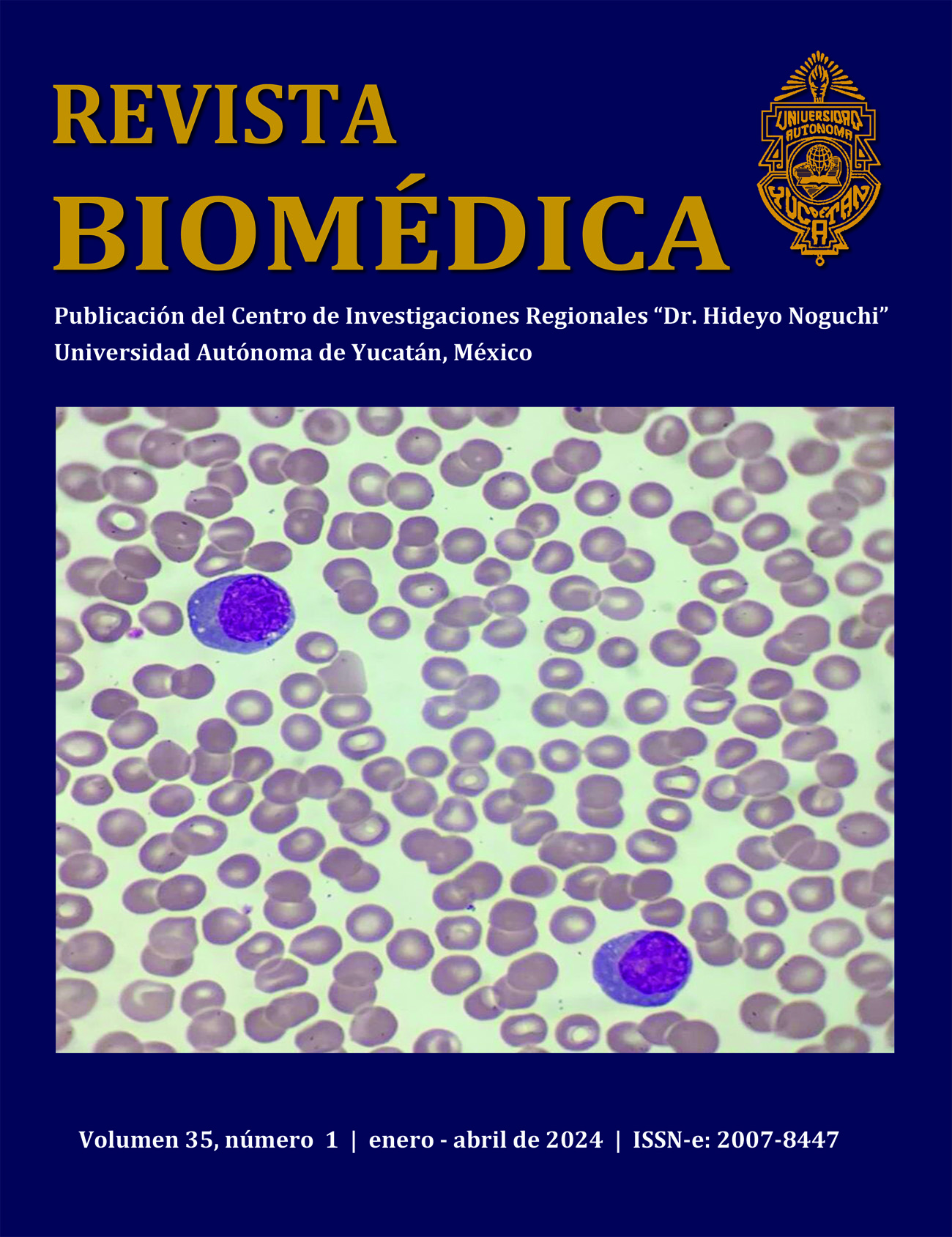Pérdida recurrente del embarazo e hipertensión pulmonar idiopática
Resumen
La pérdida recurrente del embarazo ocurre cuando una mujer tiene 2 ó más pérdidas de embarazos clínicos antes de las 20 semanas de gestación. Existen múltiples factores de riesgo relacionados con este padecimiento, entre ellos, la presencia de Hipertensión Pulmonar (HP) se vincula con elevada mortalidad (30-56% de los casos) y riesgo de abortos entre las semanas 9 y 12 de gestación. No se conoce con precisión la frecuencia de asociación entre las condiciones clínicas referidas. Presentamos el caso de una mujer de 31 años de edad que ingresó al hospital con un aborto en evolución, en el periodo posterior al legrado evidencian Hipoxemia Grave e Insuficiencia Cardiaca Derecha; durante el abordaje diagnóstico se confirma que la causa primaria de la recurrencia de abortos se encuentra asociada con la presencia de Hipertensión Pulmonar Idiopática.
Referencias
Marquard K, Westphal LM, Milki AA, Lathi RB. Etiology of recurrent pregnancy loss in women over the age of 35 years. Fertil Steril. 2010 Sep; 94(4):1473-77.
Ford HB, Schust DJ. Recurrent Pregnancy Loss: Etiology, Diagnosis and therapy. Rev Obstet Gynecol. 2009 Spring; 2(2): 76-83.
Grunig E, Weissmann S, Ehlken N, Fijalkowska A, Fischer C, Fourme T, et al. Stress Doppler echocardiography in relatives of patients with idiopathic and familial pulmonary arterial hypertension: results of a multicenter European analysis of pulmonary artery pressure response to exercise and hypoxia. Circulation 2009 Apr; 119(13): 1747-57.
Simonneau G, Robbins IM, Beqhetti M, Channick RN, Delcroix M, Denton CP, et al. Updated clinical classification of pulmonary hypertension. J Am Coll Cardiol 2009 Jun; 54(1 Suppl): S43-54.
Mocumbi AO, Thienemann F, Sliwa K. A global perspective on the epidemiology of pulmonary hypertension. Can J Cardiol. 2015 Apr; 31(4): 375-81.
Galiè N, Humbert M, Vachiery JL, Gibbs S, Lang I, Torbicki A, et al. 2015 ESC/ERS Guidelines for the diagnosis and treatment of pulmonary hypertension: The Joint Task Force for the Diagnosis and Treatment of Pulmonary Hypertension of the European Society of Cardiology (ESC) and the European Respiratory Society (ERS): Endorsed by: Association for European Paediatric and Congenital Cardiology (AEPC), International Society for Heart and Lun Transplantation (ISHLT) Eur Respir J. 2015 Oct; 46(4): 903-75.
Galiè N, Corris PA, Frost A, Girgis RE, Granton J, Jing ZC, et al. Updated treatment algorithm of pulmonary arterial hypertension. J Am Coll Cardiol. 2013 Dec; 62(25 Suppl): D60-72.
Rubin LJ, Badesch DB, Barst RJ, Galiè N, Black CM, Keogh A, et al. Bosentan therapy for pulmonary arterial hypertension. N Engl J Med. 2002 Mar; 346(12): 896-903.
Cervera R, Font J, Gomez-Puerta JA, Espinosa G, Cucho M, Bucciarelli S, et al. Validation of the preliminary criteria for the classification of catastrophic antiphospholipid syndrome. Ann Rheum Dis. 2005 Aug; 64(8): 1205-9.
Ghofrani HA, Galiè N, Grimminger F, Grüning E, Humbert M, Jing ZC, et al. Riociguat for the treatment of pulmonary arterial hypertension. N Engl J Med. 2013 Jul; 369(4): 330-40.
Miyakis S, Lockshin MD, Atsumi T, Branch DW, Brey RL, Cervera R, et al. International consensus statement on an update of the classification criteria for definite antiphospholipid síndrome. J Thromb Haemost. 2006 Feb; 4(2): 295-306.
Weiss BM, Zemp L, Seifert B, Hess OM. Outcome of pulmonary vascular disease in pregnancy: A systematic overview from 1978 through 1996. J Am Coll Cardiol. 1998 Jun; 31(7): 1650-7.
Jaïs X, Olsson KM, Barbera JA, Blanco I, Torbicki A, Peacock A, et al. Pregnancy outcomes in pulmonary arterial hypertension in the modern management era. Eur Respir J. 2012 Oct; 40(4): 881-5.
Razo-Morales D. Síndrome antifosfolípidos y anticoagulante lúpico, anticuerpos antifosfolípidos. Rev Mex Patol Clin. 2000 Jul-Sept; 47(3): 168-71.
Loizou S, Singh S, Wypkema E, Asherson RA. Anticardiolipin, anti-beta(2)-glycoprotein I and antiprothrombin antibodies in black South African patients with infectious disease. Ann Rheum Dis. 2003 Nov; 62(11): 1106-11.
Enlaces refback
- No hay ningún enlace refback.













